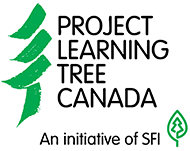News
Implement support systems first: One employer’s suggestion after the “Green Jobs are for Everyone” Workshop SeriesMay 10, 2021
Sarah MacKell, the lead biologist for Wildlife Preservation Canada’s (WPC) Native Pollinator Initiative, is going through the hiring process for the first time as an employer. She said that webinars like the “Green Jobs are for Everyone” Workshop Series and Career Connections Fair are important for employers to see how they can improve personally and as an organization. “I’ve known it’s a privileged and ableist sector for a long time, but I guess I haven’t sat with it that much,” said MacKell. “For example, if you’re going to do fieldwork, you have to be able to lift heavy weight. You have to be outside for many hours. You might not have access to a washroom. You might need access to a vehicle, which is very expensive.” With these barriers and the way organizations hire or word their job postings, it can narrow down who applies or who can even see themself in the green sector, she said. “It’s unfortunate because I’ve met tons of people who would be great for different positions, so we need to collectively do more to make the Green Jobs sector an inclusive space,” she said. “You need more than a single group or two’s perspectives.” MacKell herself experienced obstacles to landing Green Jobs, as many job postings called for vehicle access, expensive certificates, or years of experience she didn’t have. “Job postings often ask for a lot of experience or qualifications, but organizations understand that most people don’t have that,” she said. “But I think a lot of people will read the posting, take it at face value, and not apply. I think it excludes a lot of people.” One of MacKell’s biggest takeaways from the “Green Jobs are for Everyone” Workshop Series and Career Connections Fair was that workplaces need to implement systems before inviting people who may face more barriers, to ensure they are really supported. Hiring an external consultant to evaluate your workplace can help you identify barriers you might not know exist. And it’s a good idea to make connections with communities as well, she said. “You can’t expect people to want to come into that space until they feel comfortable and supported,” said MacKell.
To plan her career pathway, MacKell asked her co-op supervisors how they got to their positions, and how someone could get there today. If she hadn’t asked for their advice, she may not have pursued her master’s degree, she said. “In my master’s, I got to work with someone from WPC,” said MacKell. “Even if you don’t plan on staying in academia, most organizations will work with academia to get their research done, so you can make those connections.” MacKell also advises job-seeking youth to volunteer or pursue seasonal tech jobs with an organization before applying to a full-time position. “Seeing on their resume that they’ve done something with the organization shows they’ve been thinking about the company for a while; they share similar values,” she said. Watch the youth and employer learning sessions below:
|



